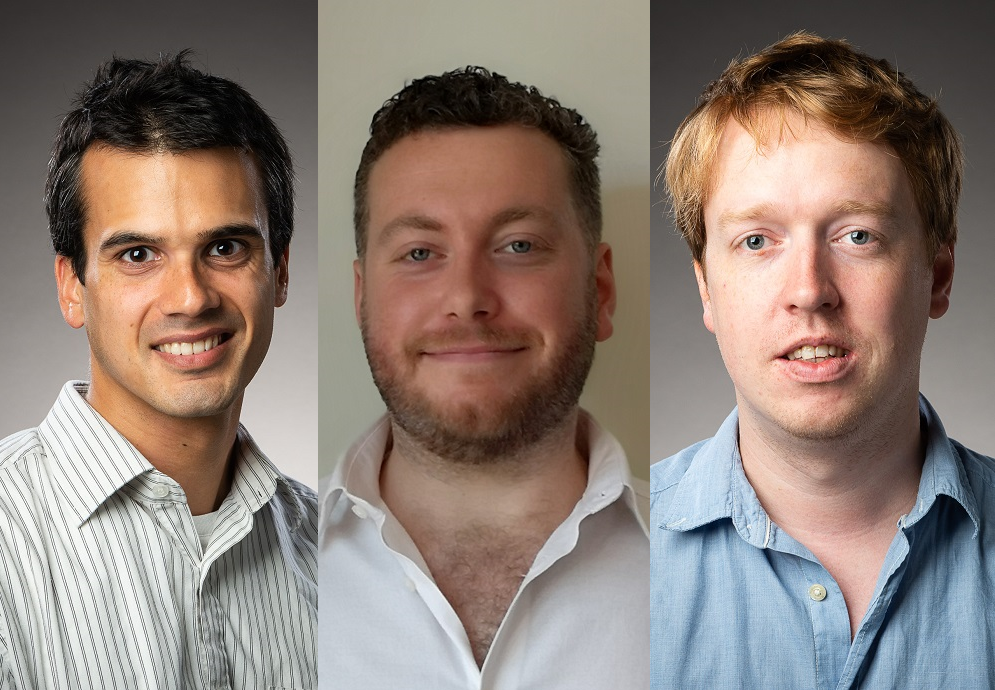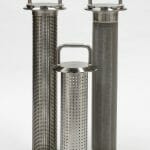Three chemical engineering researchers have been awarded the Andrew Fellowship by the Institution of Chemical Engineers (IChemE) to advance the field of catalysis.
Simon Freakley, Alexander O’Malley and Jack Williams have each been awarded the four-year Fellowship to develop new catalysts, which are materials that speed up chemical reactions needed to produce the everyday products and fuels that society relies upon.
The Fellowship was established in 2012 to commemorate the prestigious work of IChemE Fellow Syd Andrew, a distinguished expert in catalysis. Successful candidates are awarded £10,000 annually and report their findings to IChemE’s Andrew Fellowship panel to progress through each year. They also have guidance from a mentor, an IChemE member with significant experience in the field of catalysis. The Fellowship also aims to foster industry-academe relationships that support innovation.
Freakley, a Lecturer at the University of Bath’s Department of Chemistry, will begin his Fellowship this summer.
His project will focus on developing and testing new catalyst materials that consist of nanoparticles of metal with 10–1,000 atoms that can absorb and use light to power a reaction instead of heat. This effect is called surface plasmon resonance.
Freakley said:
“I was delighted to be awarded this fellowship not only because it will allow me to carry out interesting science in the catalysis research field, but also to engage with a leading company in the sector to gain a greater understanding of the wider market and needs of industry.”
O’Malley starts his project in June. He will be designing catalysts and catalytic processes from lignin-derived phenolic molecules (plant-based molecular chemical compounds). This is to improve the manufacture of sustainable aromatic chemicals and biofuels for the petrochemicals industry to produce bulk chemicals – such as plastics, solvents, resins and paints – as well as fine chemicals for fragrances and pharmaceuticals that are in high commercial demand.
Using various classical heterogenous catalysis simulations, and working closely with leaders in petrochemicals, he seeks to understand how the phenolic molecules behave and change composition at a range of scales when they react with zeolite catalysts.
O’Malley, Whorrod Research Fellow at the University of Bath, said:
“The Fellowship is a fantastic opportunity to enable stronger links with industry and increase the influence of my research. Along with the financial support, the incorporation of an IChemE Fellow as a mentor is immensely valuable. To have a mentor with decades of experience in the chemical industry to guide my research priorities from a commercial, engineering and economic point of view will be absolutely crucial to maximising its impact, and I’m sure this will develop the way I approach research hugely from here on in.”
Williams, Postdoctoral Research Associate at the Magnetic Resonance Research Centre (MRRC) at the University of Cambridge’s Department of Chemical Engineering and Biotechnology, began his project on 1 June.
The Fellowship is supporting his research into polymer electrolyte membrane (PEM) electrolyser cells (ECs) and related PEM fuel cells (FCs), used in the production of green hydrogen for electricity. He will apply both nuclear magnetic resonance (NMR) and magnetic resonance imaging (MRI) to these cells to study their reactions with water and hydrogen gas molecules, aiming to optimise the cell design for sustainable energy production.
Williams said:
“I am very grateful to the panel for awarding me the Andrew Fellowship. I am excited to begin research in an exciting and fast-moving field that is receiving so much recent interest. The Fellowship will facilitate my ability to share my research with others in the field through conferences and lab visitations, which will hopefully serve to accelerate the research.”
Chris Hardacre, Chair of IChemE’s Andrew Fellowship Panel, said:
“Congratulations to Simon, Alex and Jack for being awarded the Andrew Fellowship. IChemE is keen to support chemical engineers, academia and industry across the world in helping to advance research, innovations and solutions to produce products that people rely on every day. This Fellowship is one great example of how this support is cultivated.
“My fellow panel members and I look forward to seeing the regular updates and results of each of your research as it develops.
Applications for the 2022 Andrew Fellowship are open to researchers around the world. Find out more about the Fellowship, its criteria and apply on IChemE’s website.








